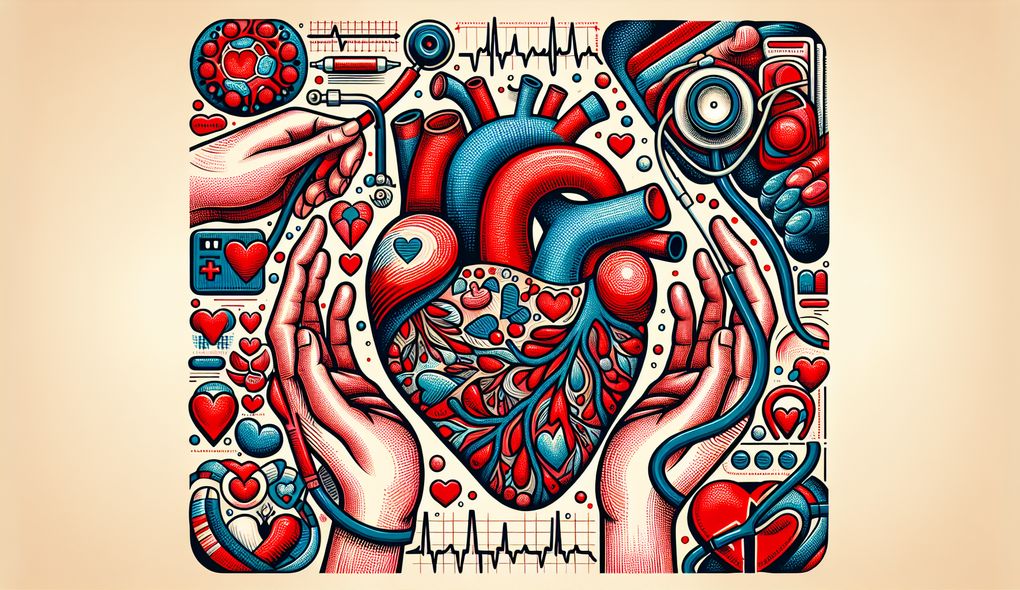What do you believe are the most important qualities for an Adult Congenital Heart Disease Specialist to possess?
SENIOR LEVEL

Sample answer to the question:
In my opinion, the most important qualities for an Adult Congenital Heart Disease Specialist to possess are expert knowledge of congenital heart disease in adult patients, excellent diagnostic and clinical decision-making skills, strong communication skills, the ability to lead and collaborate with a multidisciplinary team, commitment to continuing education, and proficiency in using medical technologies and electronic health record systems. These qualities are crucial for providing advanced care and improving the quality of life for patients with lifelong heart conditions.
Here is a more solid answer:
As an Adult Congenital Heart Disease Specialist, it is crucial to have expert knowledge of congenital heart disease and its progression in adult patients. This includes a deep understanding of complex heart defects and the appropriate diagnostic and treatment approaches. Additionally, excellent diagnostic and clinical decision-making skills are essential for accurately assessing patients' conditions and devising personalized treatment plans. Strong communication skills are vital for effectively interacting with patients, their families, and healthcare staff, ensuring clear and comprehensive communication about diagnoses, treatment options, and ongoing care. The ability to lead and collaborate with a multidisciplinary team is important for coordinating care and ensuring a holistic approach to patient management. As a specialist, a commitment to continuing education is necessary to stay current with medical practices and research in the field. This includes attending conferences, engaging in professional development opportunities, and participating in ongoing clinical research studies. Finally, proficiency in using medical technologies and electronic health record systems is essential for efficient and accurate documentation of patient information and treatment plans.
Why is this a more solid answer?
The solid answer expands on each of the important qualities for an Adult Congenital Heart Disease Specialist and provides specific details on why each quality is important in the role. It also includes the requirement of being board-certified in Cardiology with a subspecialty in Adult Congenital Heart Disease and having a minimum of 5 years of experience.
An example of a exceptional answer:
In my experience as an Adult Congenital Heart Disease Specialist, I have found that having not only expert knowledge but also a deep understanding of the unique challenges faced by adult patients with congenital heart disease is crucial. This includes recognizing the long-term effects of these conditions and tailoring treatment plans to meet the individual needs of each patient. Exceptional diagnostic and clinical decision-making skills are necessary to navigate complex cases and make critical decisions that can significantly impact patient outcomes. Furthermore, strong communication skills are vital not only for effectively interacting with patients, but also for collaborating with a multidisciplinary team. It is essential to foster a culture of teamwork and open communication to ensure that all healthcare providers are aligned in the best interests of the patient. To stay at the forefront of advancements in the field, a commitment to continuing education is essential. This involves actively seeking out new research, attending conferences, and participating in ongoing professional development opportunities. Additionally, being proficient in using medical technologies and electronic health record systems streamlines patient care and enables seamless communication and coordination of their treatment. By leveraging these technologies effectively, we can provide more personalized and efficient care.
Why is this an exceptional answer?
The exceptional answer goes beyond the basic and solid answers by providing personal experience and insights from the candidate in the role of an Adult Congenital Heart Disease Specialist. It emphasizes the importance of a deep understanding of the unique challenges faced by adult patients with congenital heart disease and tailoring treatment plans accordingly. The answer also highlights the significance of exceptional diagnostic and clinical decision-making skills and the ability to effectively collaborate with a multidisciplinary team. Additionally, it emphasizes the value of staying at the forefront of advancements in the field through ongoing education and leveraging medical technologies for improved patient care.
How to prepare for this question:
- Familiarize yourself with the latest research and advancements in the field of adult congenital heart disease. Stay updated on medical journals, attend conferences, and engage in ongoing professional development opportunities.
- Develop strong communication skills, both verbal and written, to effectively interact with patients, their families, and healthcare staff. Practice clear and concise communication of complex medical information in a way that is easily understandable to patients.
- Seek opportunities to lead or participate in multidisciplinary teams to enhance your ability to collaborate and coordinate care effectively.
- Demonstrate a commitment to lifelong learning by highlighting your participation in continuous education programs, certifications, and research studies.
- Ensure proficiency in using medical technologies and electronic health record systems to streamline patient care and improve documentation accuracy.
- Prepare examples that showcase your expertise in diagnosing and managing complex cases of adult congenital heart disease. Highlight your ability to make critical decisions and ensure positive patient outcomes.
What are interviewers evaluating with this question?
- Expert knowledge of congenital heart disease
- Excellent diagnostic and clinical decision-making skills
- Strong communication skills
- Ability to lead and collaborate with a multidisciplinary team
- Commitment to continuing education and staying current with medical practices and research
- Proficiency in using medical technologies and electronic health record systems

